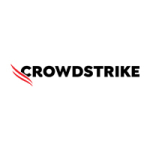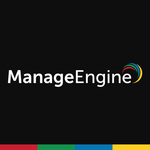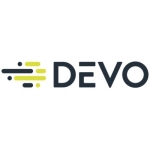What is our primary use case?
We use it for real-time alerts for things like domain admins being added. And we have the managed services provide weekly reports for us for VPN logins, after hours logins and several other similar alerts.
And of course, at any time I can do individual investigations and searches on interesting traffic that might be reported to me by Netsurion or that we find on our own.
How has it helped my organization?
The solution saves me at least half an FTE, some 20 hours a week. If I didn't have the managed services, I would have to have another half an FTE just to do the work that they do for us.
Netsurion has assisted our server administration team as well. If they're having software problems or access problems or the like, they have the ability, with all the logs now centralized in one place, to go to one place and do those searches, rather than to go individually, server by server by server, and try to figure it out.
It's also tied into our enterprise firewall, which is Palo Alto. It really helps them in their troubleshooting time if they're having an issue.
There are 3 aspects that Netsurion is very helpful to our organization. One side is the information security side where it helps us quickly investigate an incident including false-positives. A second aspect is operational efficiency. It would really take a lot of time to try to figure it out server by server but with Netsurion they can go to one place which has all those server logs. The third aspect is log archives. Once it makes it to Netsurion, they can keep local log storage space pretty low and don't have to burn a lot disk space on the local servers.
I also feel that Netsurion has better integration. Almost any product could integrate with just about anything else, given enough time and resources. But that's part of the managed services that we contract with Netsurion. We have integrations into Sophos (for antivirus), Office 365 (for email) and for our enterprise firewall (Palo Alto), and our Cisco networking equipment. So we've got all the critical infrastructure pieces integrated and all of those were integrations out-of-the-box-that I probably could have figured out if I had enough time. But I tell them what I'm trying to do and either they have a white paper which gives me one, two, three steps to do it, or they actually take over. I give them a service account. They take over, they do it, we do some testing and we go live with it.
Everything we have is a real-time feed. We don't have anything that is just batch and then it reads it in later. Especially on those real-time alerts that I mentioned, I know about each of those literally within minutes after it happens, because it's a real-time feed. The alert fires and sends me an email or a text, whichever I have set up.
We're also very impressed with Netsurion SIEMphonic. That's what they've renamed their SIEM tool. We use it quite a bit now. They've got something called potential insider threats that we look daily. Those are things like account creations and the like. A SIEM tool doesn't necessarily know, just because an account is created, whether it should have been created or if somebody created it to try to hide their tracks. Also, seeing things like logs being cleared on servers has been very helpful to us. We would have no other good way to get visibility into those types of things. An extension of that is the alerts that we talked about. It's really been really invaluable for us to get insight into our environment. There'd be no other way for us to really get that without either SIEMphonic or one of its competitors.
What is most valuable?
Really, all of the features are valuable. Probably the most valuable are the real-time alerts and the weekly reports. They would like to send me the reports daily, but because I'm a one-person shop, I just don't have the time to pour through them. Those weekly reports really give me a view of the landscape and of things that might have slipped through the cracks.
The real-time alerting for things such as people getting dropped into a VPN group or the domain admin group — things like that which really shouldn't happen without proper change management, but we all know the reality, that they do from time to time — gives me real-time visibility into what's going on.
I do like, with version 9, that they have what they call Elasticsearch which is very quick, although that's only available for the last seven days' worth of data. It used to be that, if I wanted to do a search from three days ago, it might take me 10 to 15 minutes because it had to actually unzip some archive files. So I really like that feature. It's almost instantaneous for anything within the last seven days. I can go back as far as I have archived, which for us is a set of six months. It all depends on how much you want to store. We store one semester's worth of data. That real-time, very quick access is very helpful for our workflow and the ability to investigate things.
Also with version 9, the overall UI is much better. It's more like Splunk, which is one of their competitors. It has more of that kind of look and feel. You literally drag and drop different fields and elements that you want in your reporting. And with that Elasticsearch, where it's almost instantaneous, it's so much more helpful. Their old query tool was okay, but it had the old look and feel. You picked the field you need and you chose an operator like "equals," etc. This new look and feel really is drag-and-drop. It's so much more modern and very useful. It makes it very efficient if you're looking for something.
What needs improvement?
With version 9 there are so many areas where they changed the look and feel and it is so much easier. I really don't have anything that is a pain point or that I have to work around or that I would like to be a little better or easier.
With version 8, there are quite a few things. The query tool was one of the big ones, and the query speed was one of the big ones, but they've made some great strides between versions 8 and 9.
There were also issues in version 8 around the ability to get the data back out. It's one thing to collect data, but it's a whole other thing to be able to present it or run it in a timely manner. The old tool, depending on how far back I was looking, might even time out and I would have to run it again.
We don't have any of those issues with version 9, as long as we're staying within that seven-day window. You get outside the seven-day window and it still performs the same sort of way. And it's not Netsurion or SIEMphonic's fault; it's just the way they store the data and have to be able to open the data back up. But the look and feel of the query tool is still exactly the same as it was. It's just a matter of whether you are looking at that real-time, very quick access, or you are looking at more of an archive-type.
For how long have I used the solution?
I've been using Netsurion for about four years.
What do I think about the stability of the solution?
The stability has been really great.
On the older version — and this might have even been with version 7 — we had one or two instances where we had a problem logging in with our Active Directory account. We never really got a lot of details, but I can tell you that in less than 15 minutes they had it corrected. They have VPN capability as part of the managed services to be able to get in anytime they want. That VPN capability has two-factor authentication on it. We opened a ticket with them, told them what was going on, and they came in via VPN and corrected the situation.
We did have this issue twice, about nine months apart. But we have not had that problem in version 8 or 9. I don't know if it was something within the server configuration or something else. Other than that, we've never had any stability problems.
The query timeouts, again, were just due to the sheer volume of data that we were trying to extract out of the thing. It was something we were able to work around. We could do a couple of extractions and bring them back together. It wasn't anything that was a big pain for us. It was a little bit of a learning curve and understanding.
In the early days of it we were really trying to get everything. But they were really great and said, "Well, that's great, but after you get everything, then you've got to pare it down anyway. So why don't you just build your query in a way that is smart enough to get only what you really want to begin with. So when you do get your extract, it's ready to work on." That was part of a learning curve for us and their suggestion really helped out a lot.
What do I think about the scalability of the solution?
We haven't had any big problem with scalability.
When I got here, we were keeping a year's worth of data. The reason we're now only keeping six months instead of a year is our own backup speeds and/or how much disk space it's taking up. We talked to our CIO and several senior leaders. Everyone was comfortable, as long as we could go back and investigate within the same semester. We felt that reducing from a year to six months was acceptable. That also fixed our backup times which were taking so long and how much total disk it was taking up. It had zero to do with the product. It was strictly a matter that storing so much data was taking that much space and that long to back up.
Today, in our organization, it's used as needed. We may have five security incidents a month. The server admins use it for operational needs once a month or every other month. So we don't have super-heavy use here. Most of my investigations come out of those weekly reports or things that come up within the environment in real-time. There's not a tremendous need to be able to use it more often, because of the real-time alerting and those timely, weekly reports. A lot of those were custom reports that we asked them to build for us. We really get visibility right into what we want to see all the time. So we're able to address situations very quickly and not have to hunt around and figure things out.
How are customer service and support?
Their technical support is really good. We've got a dedicated service manager.
The only thing — and it's not a problem, but I do like to mention it — is because they are in a different time zone, it's not that they won't respond, but it depends on how severe the ticket is that I open. If it's anything much past noon or 1:00 p.m., I know because of the time difference that it's going to be the next day before they get back to me, unless it's something that's really hot.
They do have 24/7 coverage, but unless it's something that's really down or a real issue, if it can wait till the next day, you won't necessarily be able to get somebody on the phone that afternoon. The great thing is, I start at 7:00 a.m. Central anyway, so there is overlap for five hours of my time and that's been sufficient.
They have U.S. sales, but not necessarily U.S. support, but that's okay. It hasn't been a problem.
It's not hard to escalate when necessary. If I send a second ticket or ask for some kind of update, that dedicated service manager responds pretty quickly. Most of the time, he'll actually be calling me and seeing what else they can do. They've been really great about turnaround speed and communication.
Netsurion's SOC team is who I report my issues to if I want to open a ticket. It's part of the managed services but it's not the only piece of that service.
How was the initial setup?
When I got here, the CISO before me was retiring, and he was about 75 percent of the way through the implementation. I did about the last 25 percent of the agents. So I can't really speak to the setup.
But I can speak to upgrades, and those have gone seamlessly. That is part of the managed services that we contract with them. They do all the upgrades for us and make sure they perform correctly and make sure all the agent endpoints upgrade correctly. And if they don't upgrade correctly, they have to take whatever actions are necessary.
But I don't see why the initial setup wouldn't have been fairly straightforward, because of everything else I've seen in the tool. They seem to have really good documentation and they definitely have really good support staff, if I've got any kind of questions or problems at all.
The time an upgrade takes depends on if it's a major or a minor. If it's a minor upgrade, like a 0.1-type of upgrade, those usually take place overnight. Their headquarters are in Europe, so by the time I get into work at 7:00 a.m. Central, the smaller ones will often be done. Otherwise, they'll give us the outage window, and it depends. The 8.0 to 9.0 was almost like a forklift. It was almost like a whole new product. That one took six to eight hours.
But the great thing, the way their product is designed, is if the endpoints can't deliver their logs, they will just keep on collecting them locally. As soon as the server comes back online, they deliver them. I never lose anything. It's just I didn't have the ability to query during the upgrade period. That's another thing that's wonderful. It's not like I have some little moment in time that I sure hope something hasn't happened, because I don't have visibility. I do have visibility. It's just a matter of whether it is actually in the query tool yet or not.
When I first got here, we had some problems pushing out some updates and we never did really resolve it. It was something within our environment. They don't have that problem in other customers' environments. But they came up with a workaround. They're responsible for doing those, and it's been flawless.
We didn't have a competing product. This solution was just slowly pushed out to the various things that we wanted to collect data from. Initially, all of our on-prem servers had agents installed, including various versions of Windows, Unix, and Linux-type hosts, as well as to our networking equipment and our firewall. Some of those things collect syslogs, while the Windows boxes, for example, have a real agent on them.
The process was that the console was stood up and we slowly we went after our prioritized endpoints. Things like our domain controllers were first. We slowly moved down the priority list until we got to the low-value assets. Those were the ones that I implemented. So the critical components were already in place when I got here.
What was our ROI?
We feel that we're getting a real ROI. Between having the managed services and having the product on-premise, we feel like we're almost getting the managed services for free. They've given us a very good price.
Based on industry standards, it's saving me at least $25,000 to $30,000 a year.
What's my experience with pricing, setup cost, and licensing?
If you look at competing products, Netsurion is less than 50 percent more expensive, and I pick up all those managed services. I pick up half an FTE without having to pay benefits.
Which other solutions did I evaluate?
I don't know the reasons why they put this in right away, because we were in a three-year contract — but at the end of that three years the price was going up. I don't know that we had done the math on it before, and we thought, "Whoa, wait a minute."
So I actually did look at AlienVault, which was a good competitor technically, but I could never find anybody who could give me any decent price to help with that managed service. So either I was going to have to pay a lot more, and sometimes upwards of double what I'm paying Netsurion, or I was going to have to hire an FTE to do it. There's no way that that would work out financially. When they heard that we were shopping other products, we negotiated with them and they came back and agreed to put a cap on the price. We've been thrilled with that. It's worked out really well.
Compared to others, Netsurion also has even more services. We have bi-monthly calls, reviews of what happened in the last 2 months, including things that might still be outstanding. They've reported things to us and we'll say, "Hey, we need an update on this." Or, "Are we closing this issue?" They bring those things up every other month. There are a lot more things that we could license if we could afford it. We would love to license all of our workstations. It's not that they're trying to price-gouge, it's just the size of the environment. And you have to determine what other tools, besides a SIEMphonic-type tool, you want. We've been pretty happy with what we've been able to deliver.
One thing that differentiates Netsurion is that they have the total package, or as much as you want. They can run the thing for you, as they do for us. They can offer all kinds of different services beyond just the SIEMphonic services. They're also a much more robust company and one that offers a lot more than somebody who's competing for just any single item that they offer.
When we were negotiating the price, we had bought more licenses than we really needed for our servers. But you can slice and dice and change things up. Even within the managed services, they can run the weekly reports for you or not. They can do the upgrades for you or not. They can do the bi-monthly calls or not. There are all kinds of different things they can do. So we right-sized those services and "trued-up" our licenses to what we really needed, with a little bit extra for growth. We came to a good agreement. It was a bit of a win for them. We gave up a few things that we didn't really need anyway and we were able to maintain our level of service that we had had and had come to expect.
What other advice do I have?
My advice is to get your PO out and make a purchase. I have referred several other companies. I'm involved in several security organizations and it really is one of these diamonds in the rough. I know they have US sales but I think they're a lot stronger over in Europe. I think they're a little-known, hidden secret in the U.S. I know they're in the industry review reports, but I don't think they get the press and the prestige that they should, because they have a really excellent product.
Of course, certain government organizations can't do business with support overseas; there can be limitations. But I'm definitely an evangelist for them. We really like their product and plan to keep it for a long time, provided, pricing-wise, it doesn't get out of hand. But I think we've reached a good agreement that we can all live with. We definitely feel like we're getting value for it. We have no problem writing the check every year.
This is the first time I've really worked, on a regular basis, with an overseas-support vendor. The biggest thing was getting our support hours lined up. I don't want to sound like I'm dissing them, that if we were in a world of hurt and had something that really had to be taken care of that they wouldn't respond to that. But we had to adjust our workflows knowing that, if we really need to get them on the phone, our morning is the best time to do that.
Other than that, the convenience of it, being able to think of how else we can use it and what other kinds of data we could send to Netsurion to help us out, has been instructive. For example, we have a mail product called Proofpoint that actually front ends our email and pulls out spam emails and those sorts of things. We were able to send the over the logs from that and look for any emails that were going to more than a hundred recipients. And Netsurion could give us real-time alerts and that would often tell us if an account was compromised. So there are unique ways like that to think about using it. What are some of the data of things we're trying to track down that we could send over to Netsurion and have them alert us in real-time so we don't have to run a rapport or figure out, three days later, that something went on? We can find out right in the heat of the battle what we need to do.
Netsurion's dashboard is probably good. I don't log into the console every day and I don't use it operationally, in the way some people would if they didn't have those managed services. So dashboard-wise, I don't use it as much. I do use their intrusions worldwide map from time-to-time, but beyond that, because I don't get into the console on a regular basis, it's not as useful to me. But I feel like the console would be very powerful with the widgets they can add to it. They've demoed it for me but it's just not the way my workflow is.
I usually view Netsurion on just a single, 23-inch Windows screen. I don't have any real-time thing running all the time. I strictly use it on a desktop.
In terms of deployment and maintenance of the solution, we don't have anybody additional here. There was a CISO that I replaced and everything else was from the managed service side. We do have one system engineer here who maintains the box, the virtual server that it runs on. But that is a part-time responsibility. He really hasn't had to get involved since I've been here. So there has really been no additional staff. It was just an additional tool that was put into the environment and one that is a tremendous asset for us. There are four individuals besides me who use it and they're all in the server admin group.
Version 9 was a tremendous step forward for them. I don't know how long they developed that one, but they really took the right direction with the product.
Overall, we're really thrilled with them. If I didn't have the managed services — and it wouldn't be the product's fault — I wouldn't be as thrilled with them. But that service really takes a lot off my plate and frees me up to be able to do the other things I need to do in the organization.
Which deployment model are you using for this solution?
On-premises
Disclosure: My company does not have a business relationship with this vendor other than being a customer.

















